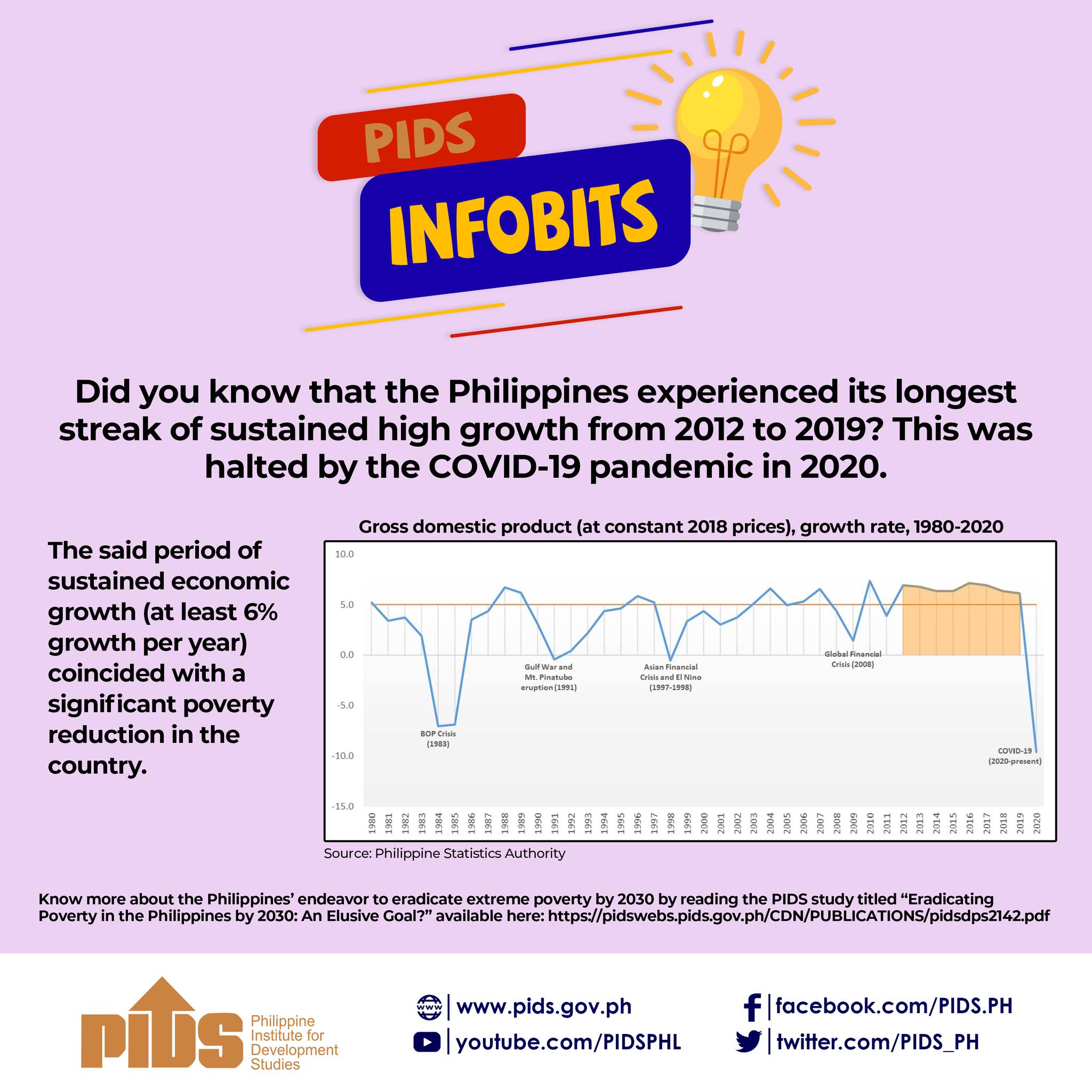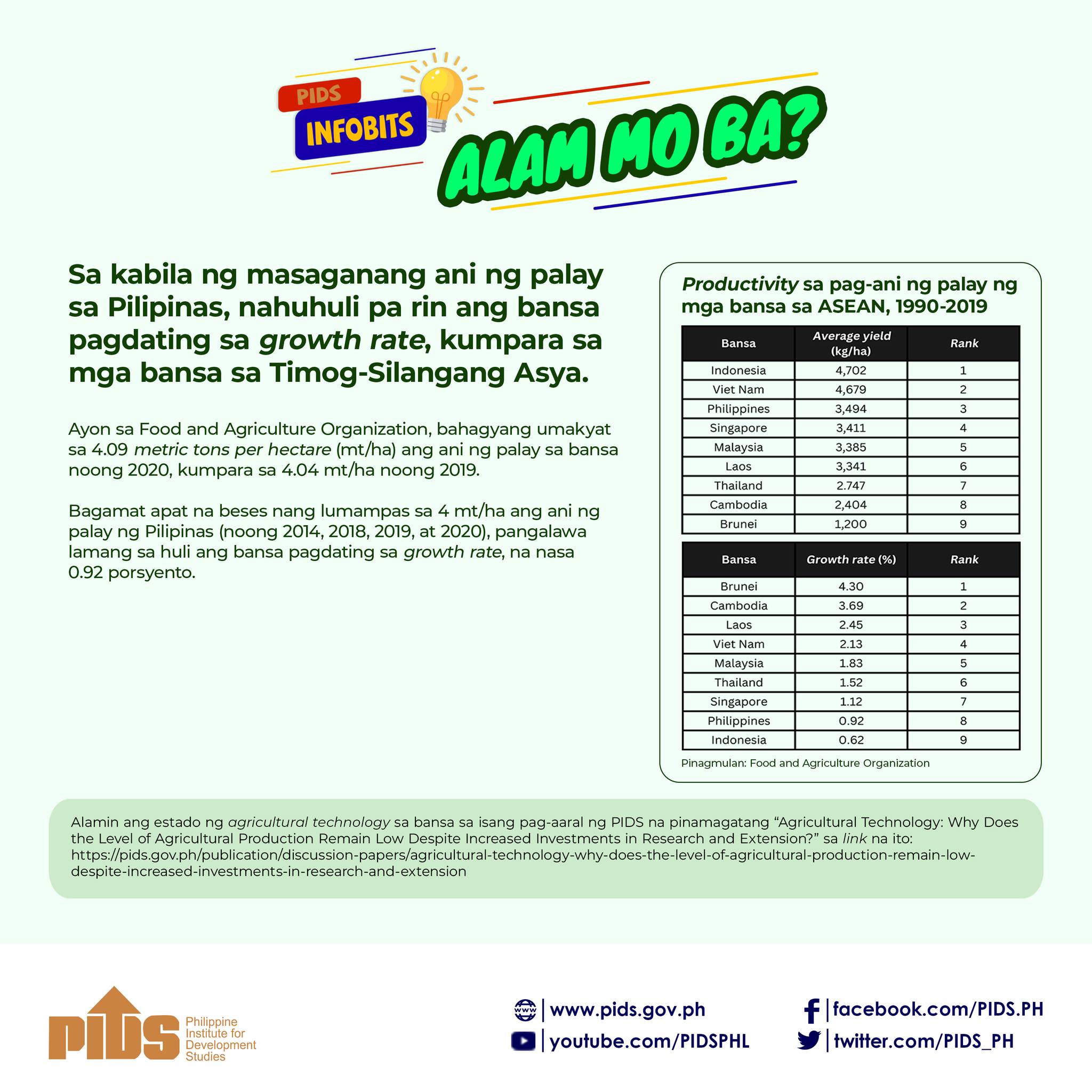The Philippine economy will likely miss its growth target this year due to lower government revenues resulting from cheaper oil and the tax exemption given to workers, according to state-owned think tank Philippine Institute for Development Studies (PIDS).
The PIDS estimates that the economy will post a growth of 6.8 percent on the back of household and government consumption this year. However, this is below the government’s target of 7 percent to 8 percent this year.
"The GDP growth forecast is 6.8 percent, and the biggest drivers of growth will be private consumption and government consumption. The risks to the outlook are [the] decline in government revenue,” PIDS Senior Fellow Adoracion Navarro said in a forum on Tuesday.
"We expect a decline in revenues from oil importation, a decline in the Bureau of Customs revenues and also the general decline in BIR [Bureau of Internal Revenue] revenues because of the tax exemption on de minimis benefits and productivity bonuses of workers, and the higher exemption tax ceiling on the 13th-month pay. This has serious implications on government spending for infrastructure and social services,” she explained.
Navarro also said other risks include low export receipts due to the slowdown in the growth that will be posted by the country’s trading partners and the competitiveness and responsiveness of Asean economies in global value chains.
She added that the country has an overstretched infrastructure sector, which suffers from tight power supply, as well as port, airport and land-transportation congestion.
However, Navarro said the Philippine economy can still post a sustained growth of 7 percent beyond 2015. But, she said, the government must undertake various policy responses to turn this into reality.
In a statement, Regina Capital said the threat of a disruptive El Niño weather pattern could raise food costs later this year. Further, an expected rebound in oil prices may force the central bank to raise rates, already at 4 percent to contain inflation.
Regina Capital also said government spending could fall below budget anew if agencies continue to get tripped up in red tape, or lack of capabilities to execute projects. Last month the government said spending in 2014 was 13.3 percent short of its target because of understaffed agencies.
But with the presidential elections next year, the government is likely to keep its promise of ramping up government spending, according to Bill Diviney, an economist at Barclays, as infrastructure improvements and job creation are popular with voters.
After its policy meeting last week, the central bank also cited expectations of increased government spending as one of the reasons for holding interest rates steady. With port and road congestion clearing up in Manila from earlier this year, "you do get the sense that the government is putting in the effort,” Diviney said.
Navarro said other policy responses include ensuring the reliability of power supply and transportation infrastructure, as well as facilitating the transmission of resources from the financial to the real sector.
She added that both the private and public sectors must take advantage of the low oil-price regime. This can open doors for company expansion in the private sector and controversial moves, such as higher taxes, for the public sector.
The National Economic and Development Authority (Neda) also earlier urged businesses to capitalize on the prevailing cheaper oil and expand their operations.
The World Bank, the Asian Development Bank and Socioeconomic Planning Secretary Arsenio M. Balisacan urged the government to increase excise taxes, especially at this time when oil prices are very low.
Apart from these, Navarro said the government must also monitor regional and global developments, such as the foundation of new multilateral banks. She cited China’s efforts in creating facilities, like the Asian Infrastructure Investment Bank and the so-called Silk Road, to finance development initiatives in the region.
In line with these developments in the region and globally, the Neda said the Philippines will lead the preparation of analytical framework papers on structural reform for inclusive growth and the role of structural reform on services to help shape discussions in the forthcoming Structural Reform Ministerial Meeting to be held in Cebu City in September.
Five themes were agreed upon by the Economic Committee. These are Structural Reform for Inclusive Growth; Structural Reform and Innovation; Structural Reform and Services; Tools for Structural Reform; and New Directions for Structural Reform in the Asia Pacific Economic Cooperation (Apec).
"The theme on inclusive growth is very much aligned with our national priority, as it is the country’s overarching goal based on the Updated Philippine Development Plan 2011-2016. Services, on the other hand, is one of the country’s key initiatives as we advance the Apec Services Cooperation Framework during this hosting year,” Neda Assistant Director General Rosemarie G. Edillon said.
Neda highlighted the need for governments and the private sector to do things differently to make growth inclusive as a way to escape the so-called middle-income trap.
The term is used to refer to a situation where an economy is no longer considered in the low-income category but is taking too long to graduate to high-income status.
The Philippines is joined by Peru and Japan in preparing the paper on Structural Reform for Inclusive Growth. The country is also getting help from Australia and Peru on the paper for the Structural Reform and Services.












